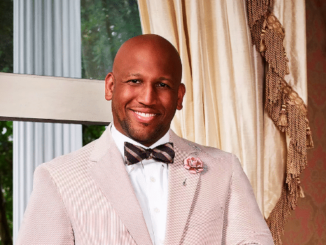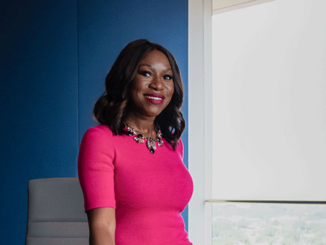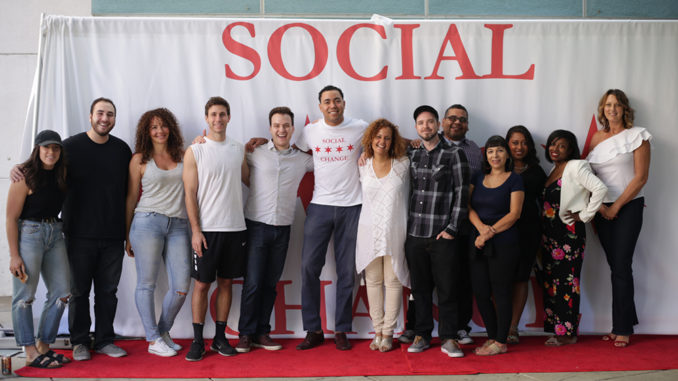
By Taroue Brooks
Todd Belcore is a six-time national award-winning lawyer, mediator, advocate, law lecturer and non-profit co-founder with over 20 years of experience serving communities.
Todd is the Executive Director of Social Change-a non-profit at the intersection of storytelling and activism that uses film, organizing, litigation, technical assistance and advocacy to dismantle the New Jim Crow and transform lives, communities and systems.
Todd couples the technical, policy and legal assistance provided by Social Change to organizations, governments and businesses with the tools and resources to increase their capacity to deliver critical services and amplify and document their impact.
Todd also makes an impact by mediating disputes (resolving everything from small claims in the courts to claims of discrimination against large financial firms) and teaching a class entitled, “The New Jim Crow” (taught at Northwestern Law and University of Chicago Law School).
To date, Todd has been able to: lead or assist in efforts to pass 23 measures in multiple states relating to justice reform, economic equity and police and community relations; provide legal assistance to over 1,000 men and women with records; train over 1,000 attorneys, advocates, and community members nationwide on policy advocacy, their rights, and available legal remedies for overcoming barriers to employment; and, write various works relating to justice reform and access to opportunity that have been published in places like the Huffington Post and the White House blog.
As a result of Todd’s commitment to service, he has received 22 honors, including the ABA’s National Outstanding Young Lawyer of the Year and the White House’s Champion of Change.
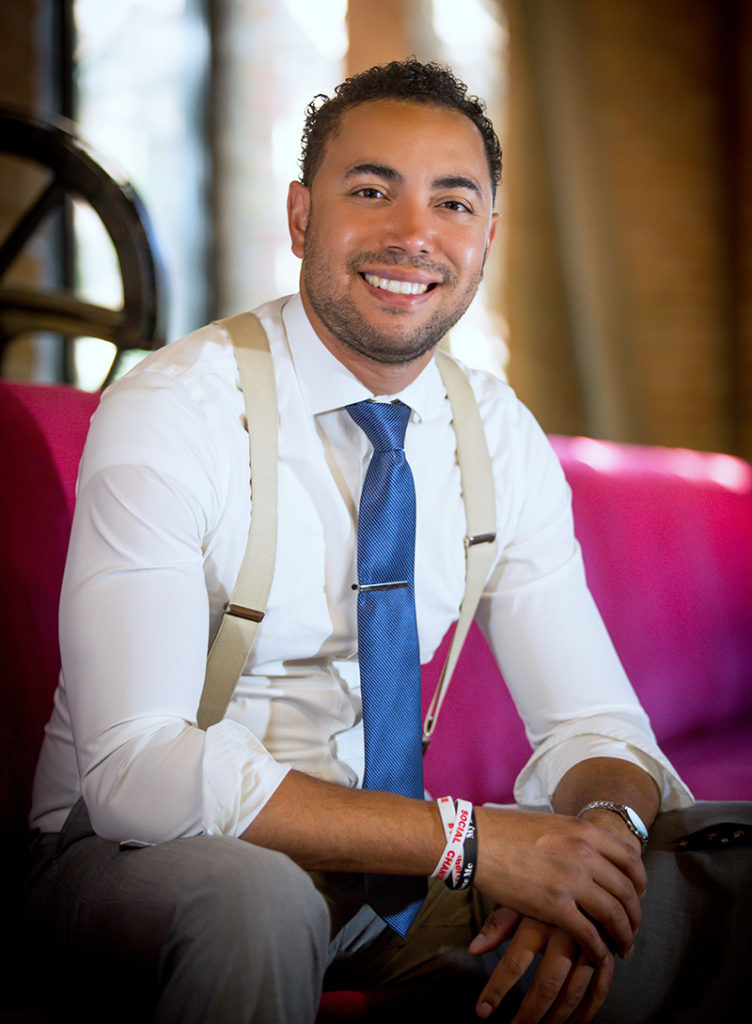
Tell us about Social Change.
If someone asked you to name the think-and-do tank for everyday people, particularly black and brown people, what organization would you name?We struggled to think of one, also. That’s why we formed Social Change.
Social Change lay at the intersection of storytelling and systemic reform and is committed to dismantling the systems responsible for preventing everyday people from fulfilling their potential. Specifically, we use film, litigation, advocacy and training to empower, uplift and support injustice affected women, men and youth worldwide to be sure untold stories are told, struggles are acknowledged, and the root causes of various struggles are addressed.
What this looks like in practice is that we share untold stories of hardship worldwide through our media campaigns and our International Social Change Film Festivals held across the nation. The stories told educate and inspire people to address the issues in the film or media campaign. We then work with and support those affected to craft and execute the reforms necessary to address the root cause of the issues documented–turning cinema and conversations into concrete change.
Why are you so committed to helping so many people?
I’m committed to helping people because I know what it’s like to struggle and how important it is to have someone fighting for you. My mother, Laura, raised my 3 siblings and I alone. One of her children, my older brother Roy, was a paraplegic. I know what it was like to study by candelight because the lights were out. I know what it was like to wear multiple layers because the gas was out. I know what it was like to be ridiculed for wearing hand-me-downs and how entire systems operated in such a way to make nearly impossible for my brother to simply get around the city. I know what it’s like to have to couch-surf. What it’s like to be on the brink of losing a home. So, in my youth into my adulthood, I experienced just how hard hardship firsthand. And when my fire nearly peters out, it’s memories of that pain, and knowing how many countless others are dealing with it, that fuels my flame.
Just as important, I also know how one’s life can be completely transformed when someone fights, claws, cries and prays to ensure they can access the opportunities necessary to fulfill their potential. I know because that’s what my mother did for us. Without her I’d be dead or in prison. Thanks to her, I was blessed to have the opportunity to become an attorney, receive 22 awards, including being recognized by the White House and being named “Best Activist” in the nation by the National Bar Association, and be honored by magazine’s we’ve been reading our whole lives like “Heart & Soul.”
So, I’ve just committed my life to standing in the gap and fighting for others just as my mother fought for me.
What are your top three proud moments as the Executive Director of Social Change?
3 moments stand out.
The first is when we first started out and were denied by multiple grantors because they termed our nationwide and international work “too ambitious”, and they we went on to do what we said we would do: have an international film festival, successful reform systems in multiple states, and help millions in the process. If I’m being honest, grantors still reject us for those reasons-even despite our track record of getting things done for a small fraction of the price of other non-profits.
The second is when our expertise was recognized most clearly by an international audience when we were asked to speak on the intersection of storytelling and systemic reform at longstanding festivals like Sundance and Cannes.The third is the first time some of the films featured in our International Social Change Film Festival received deals for mass-distribution, further demonstrating how the world was appreciating the incredible stories we’ve had the opportunity to showcase.
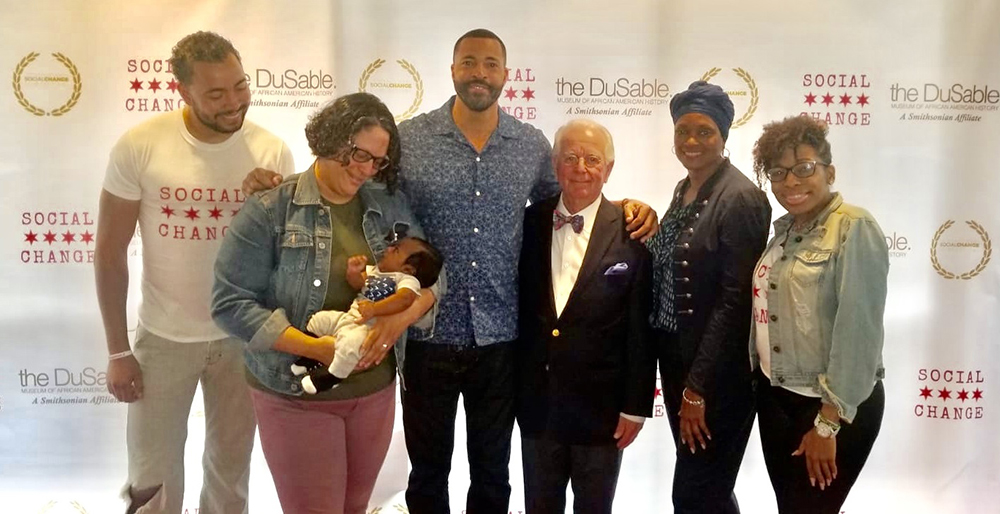
What are three goals you would like to accomplish in 2020?
Our three goals in 2020 all revolve around scaling our work up even more. We’ve perfected our model. We’ve proven we can transform lives and communities for a small fraction of what one would expect.
Now, we need to occupy philanthropy and foundations and hold them accountable. And, by that, I mean work with media, influencers and the philanthrophy community to go all-in on supporting effective organizations run by and for injustice affected people like Social Change.
The second goal is to stop exempting the film industry from the notion of corporate responsibility. Meaning, it’s time for the film industry to play a role in addressing the issues they document by committing even a small percentage of their budgets towards addressing the root causes of injustices documented in their films and beyond.
The third goal is to get more mega-influencers involved in effective activism. 3 tweets from Kanye West can do more for our burgeoning prison reform campaigns in California than 3,000 hours of work. I know it’s difficult, or too time-consuming, for stars to figure out who’s doing great work and who’s not. But, we’d like to lead the movement to not only receive that sort of support from stars who want to walk the talk, but to help identify other incredibly effective organizations, as well.
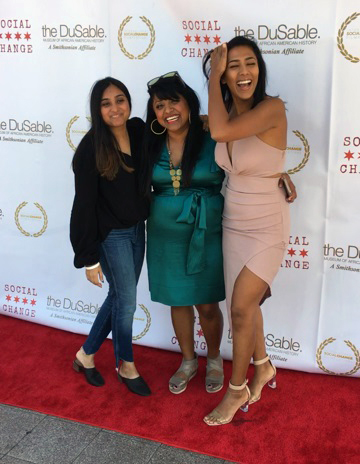
What do you find to be the most challenging aspect of managing Social Change?
The most challenging aspect of managing Social Change is helping people understand how much time, how much hard work, and how much money change actually takes. If simply tweeting a good idea or hosting a discussion were enough to yield the reforms we needed, then over 50% of our world wouldn’t be living in poverty and the land of the free wouldn’t have 5% of the world’s population and be home to 25% of the world’s population of people without freedom. Change is grueling work; and often feels like it’ll never come. But it always does for those who make a sustained commitment to it. And we’re in it until we’re called home.
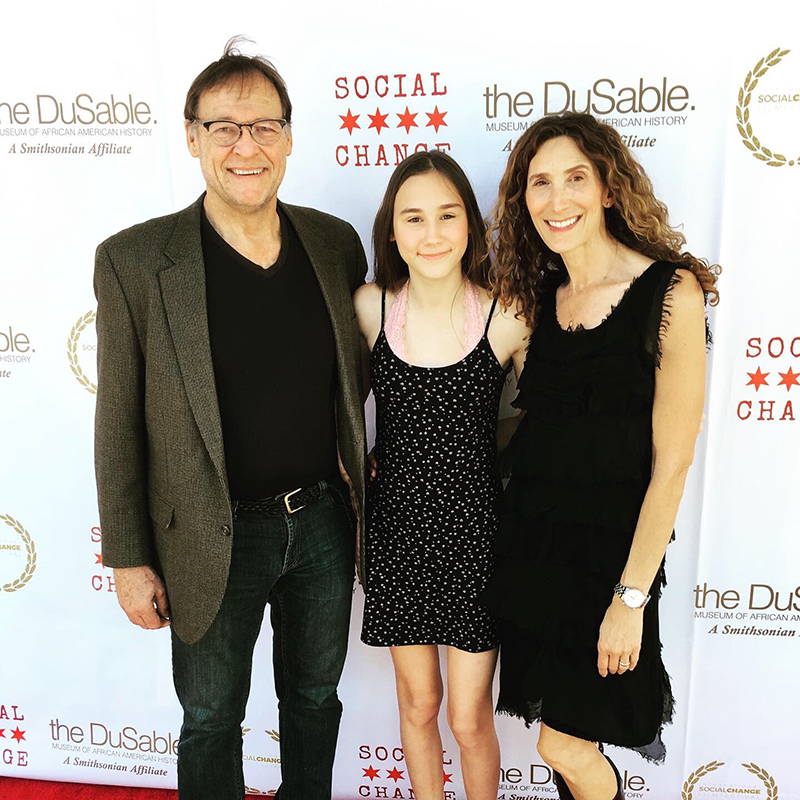
Tell us about your film festivals.
Our International Social Change Film Festivals, also called ChangeFests, are exhilarating experiences literally have something for everyone.
If you love inspiring films, ChangeFest is for you.
If you love amazing fashion or art, ChangeFest is for you.
If you’d love to get more involved, ChangeFest if for you.
Even if you just love being around people from all over the world, amazing food, good drinks, and great times, ChangeFest is for you.
So come check our ChangeFests in Chicago, September 25-27, New York, October 17, Los Angeles on November 7 and stay tuned to our social media @chisocialchange for a mystery location, as well!
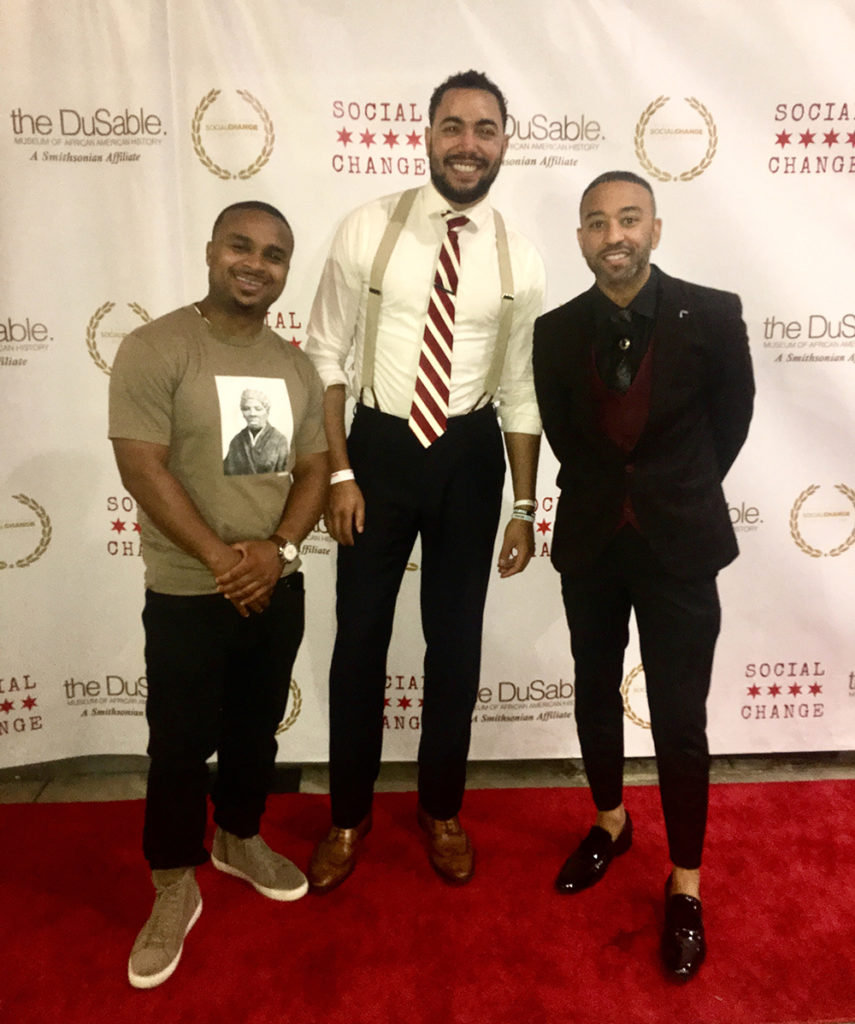
How can people support Social Change?
People can support Social Change by spreading the word by:
1) liking, following and sharing our messages and emails 2-4 times a month;
2) joining us and becoming a “Agent of Change” via our website, which comes to those who simply give $25/month or $500 or more per year; and,
3) volunteering their time and talent to helping us do even more 2-4 hours a month.
We’re able to have such an incredible impact return on investment because people, just like people who are reading this, have decided it’s time to walk the talk and not wait for one more tragedy to take place before they do something. The good news is Change is not some big daunting thing. Even small actions, when done consistently and by many, really add up to an incredible whole. Our model has proven that. That’s why we only ask for 2-4 shares, 2-4 hours and $25/month. That means everyone has what it takes to make a difference. The question is what tragedy are you waiting to befall the world now before you take that step?
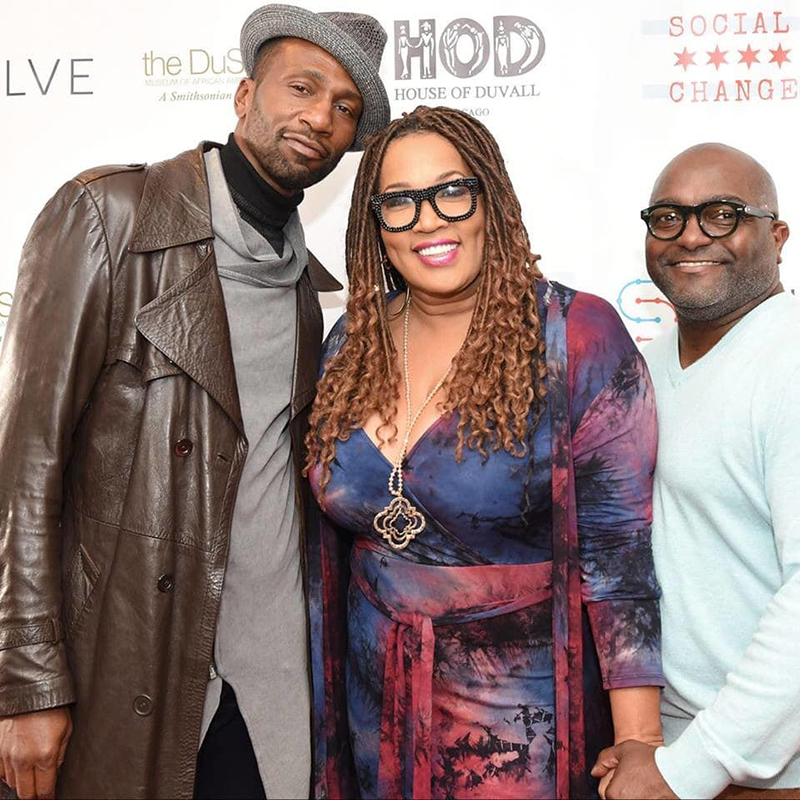
Where would you like to see Social Change in the next five years?
I’d love if our 2020 goals were realized and built upon in the next five years, 2025 would feature:1) organized, effective hubs of social change partners in every major region;
2) a philanthropy community that was truly going all-in on funding injustice affected-led organizations with 70% or more of funding going to such organizations;
3) film budgets having a 1% line item directed toward addressing the injustices documented in their films with .1% of revenues going to sustain those efforts;
4) over a quarter of the people with more than 50,000 likes or followers are meaningfully involved in at least one movement for change, Social Change had organized, effective hubs of partners in every major region in the world by 2025; and, 5) A world where 50% (45%) of its residents are no longer in poverty and the US doesn’t imprison 25% of the world’s incarcerated (20%).
Contact
Social media handles.
FB/IG/Twitter @chisocialchange




